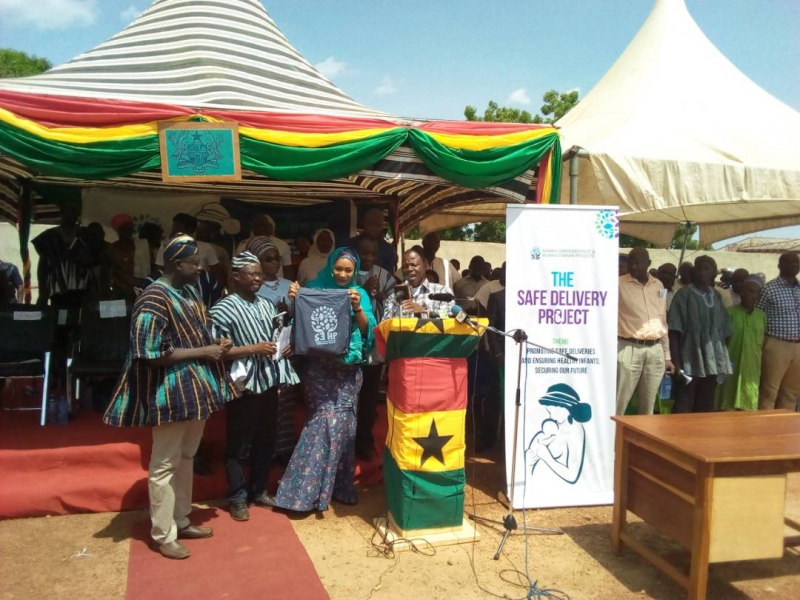Second Lady, Samira Bawumia has supported some expectant mothers in the East Gonja municipality of the Northern region with birth kits.
Mrs Bawumia has developed the Safe Delivery Project to enhance the current prevalence of maternal and neonatal mortality in the area.

Ghana has registered a gradual decline in maternal mortality rate in the last decade.

The gains, though moderate, brought the national maternal mortality down from about 740 maternal deaths per 100,000 live births in the 1990’s to 319 maternal deaths per 100,000 live births.

According to the 2016 Family Health Division of the Ghana Health Service, intervention by government agencies are affected by challenges such as insufficient funding, human resources and essential supplies especially at the peripheral levels, as well as inadequate monitoring and supervision of service delivery.
It is against this background that, the Safe Delivery Project is aimed at distributing some 1000 units of birth kits to pregnant women within their trimester and registered with a health facility in the district. If the piloting is implemented successfully in the district, SEHP aims to provide up to 100,000 well-resourced birth kits to expectant mothers in other districts across the country.
Addressing the Chiefs and people of the Kpambe traditional area, Her Excellency Hajia Samira Bawumia lamented the rate at which maternal mortality is still high in sub-sahara Africa. She disclosed that, nearly 830 women die daily from preventable causes related to pregnancy and child birth complications.
“In 2015 alone, the UN-stats estimated that 303,000 women died due to complications during pregnancy and childbirth. Almost99% of all these deaths occurred in developing countries” she added.
She said that, though there are many other issues as far as women’s health is concerned in Ghana; maternal health with its associated maternal and neonatal mortality is the greatest and the most heart-breaking concern of mine.
Meanwhile, the 2014 Ghana Demographic and Health Survey revealed that maternal mortality rate in Ghana is 319 per 100,000live births and neonatal mortality rate stands at 29 per 1,000 live births. Nearly 91% of pregnant women in the urban areas access skilled delivery while only 59% of the rural women access skilled birth. This, Mrs. Samira Bawumia noted reflects the inequalities in access to healthcare.

The Birth Kit contains medicines and supplies (Misoprostol tablets, pre-natal and post-natal vitamins and mineral supplements, medicated soap, gauze swab, cord clamps, cord sheet, sterile blade, delivery mat, cord ties, sterile gloves, combine dressing, baby hat, name tag, cord sheets, and methylated spirit) which will all be distributed by trained community based volunteers and health personnel to 100,000 expectant mothers in the worst affected communities in Ghana.
The expectant mothers will be given information on the use, importance and impact of these birth kits. These pregnant women are expected to go to health facilities with the kits during labour. In addition, qualified Senior Midwives will train Traditional Birth Attendants (TBAs) and nurses on how to effectively use the birth kits and ensure safe delivery practices for the expectant mothers, in the absence of a nearby health facility.
Source : Ghana/AccraFM.com

































